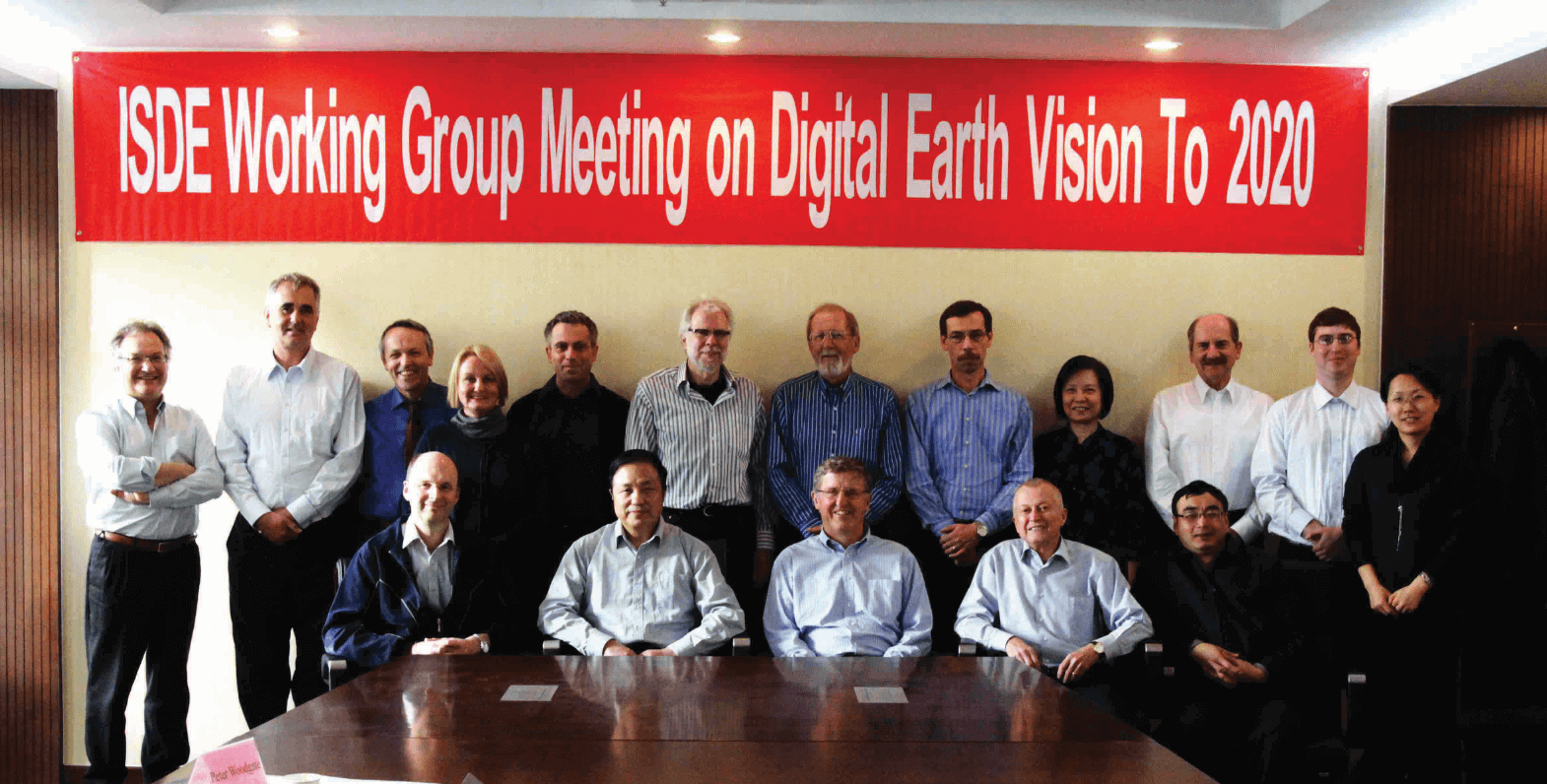
The Workshop Meeting on the Digital Earth Vision 2020 was held in Beijing, China, from March 16 to 18, 2011. The meeting was hosted by the International Society for Digital Earth (ISDE) and the Center for Earth Observation and Digital Earth (CEODE), Chinese Academy of Sciences (CAS). Since the Digital Earth concept was proposed in 1998, it has been largely developed with the effort of Chinese and international scientists, especially the establishment of the ISDE and a series of international symposia. The Executive Committee members of ISDE generally believe that it is necessary to deeply study the trends shaping Digital Earth by focusing on the latest developments in the geospatial industry, and more broadly on the drivers that will be changing society and technology in the years ahead and imagine how those changes will affect our ability to understand the state of the Earth.
The meeting began in the afternoon of the 16th with a preliminary meeting to lay the foundation for the working group meeting. At the formal meetings from the 17th to the 18th, participants discussed the main theme and relevant topics in parallel group discussions and mapped out the research that will be conducted over the next few months leading up to the 7th International Symposium on Digital Earth (August 2011 in Perth, Australia). The working group hopes to share the results of the Digital Earth Vision to 2020 discussion and research at the symposium as well as in high-impact publications targeting a diverse audience of citizens, researchers, and policy-makers, all of whom will affect and be affected by future iterations of Digital Earth.
Sessions were chaired or co-chaired by Peter Woodgate, Chief Executive Officer of the Cooperative Research Centre for Spatial Information (Australia); Prof. Guo Huadong, Director-General of CEODE; Michael Goodchild, UC Santa Barbara (USA); Alessandro Annoni, Head of the Spatial Data Infrastructures Unit, Institute for Environment and Sustainability, European Commission (Italy) ; Manfred Ehlers, University of Osnabrueck (Germany); Gabor Remetey, Secretary General of the Hungarian Association for Geo-information (Hungary); and Richard Simpson, University of Auckland (New Zealand).

2006-2023 All Rights Reserved 京ICP备06045536号-1 京公网安备 11010802041631号